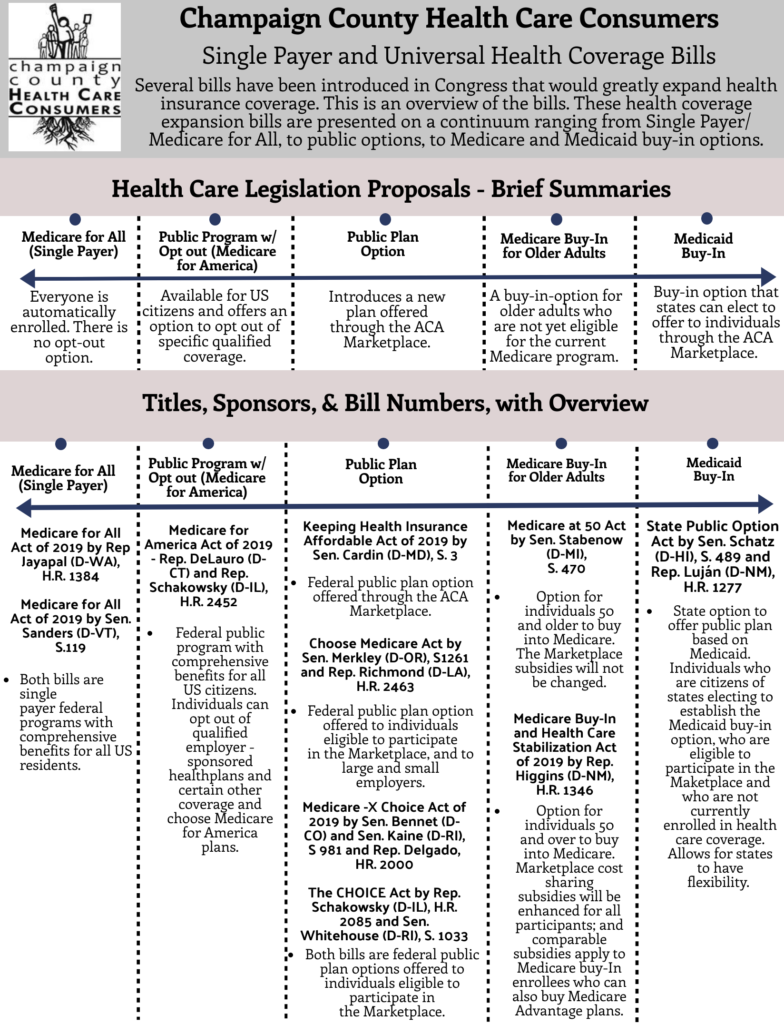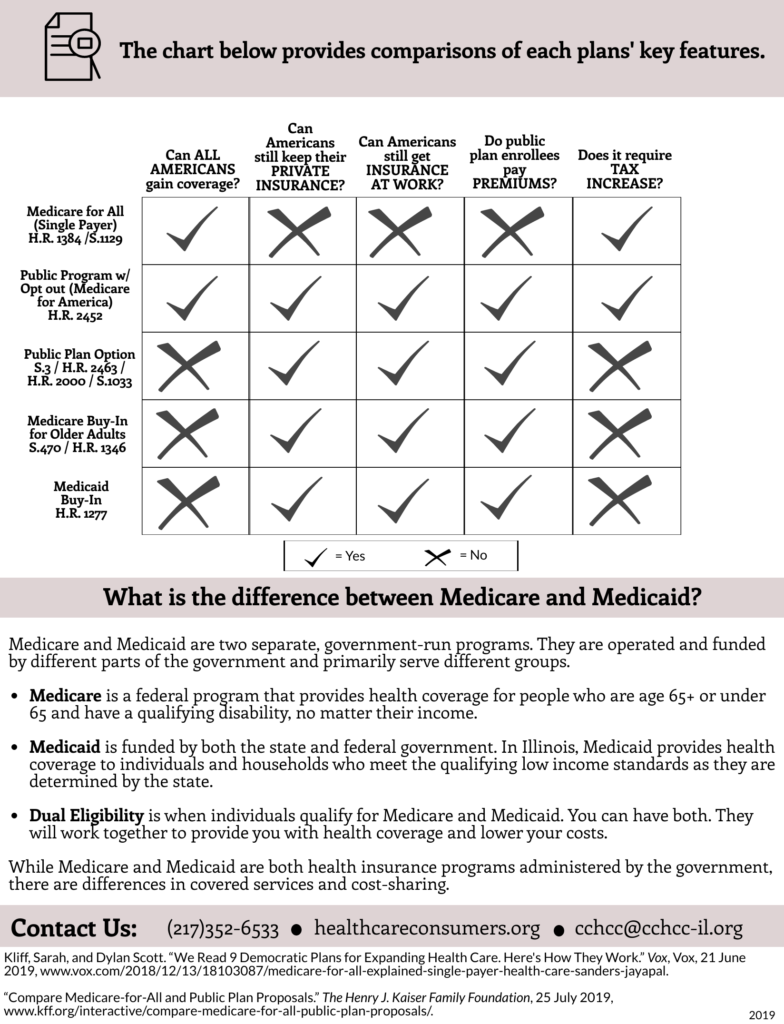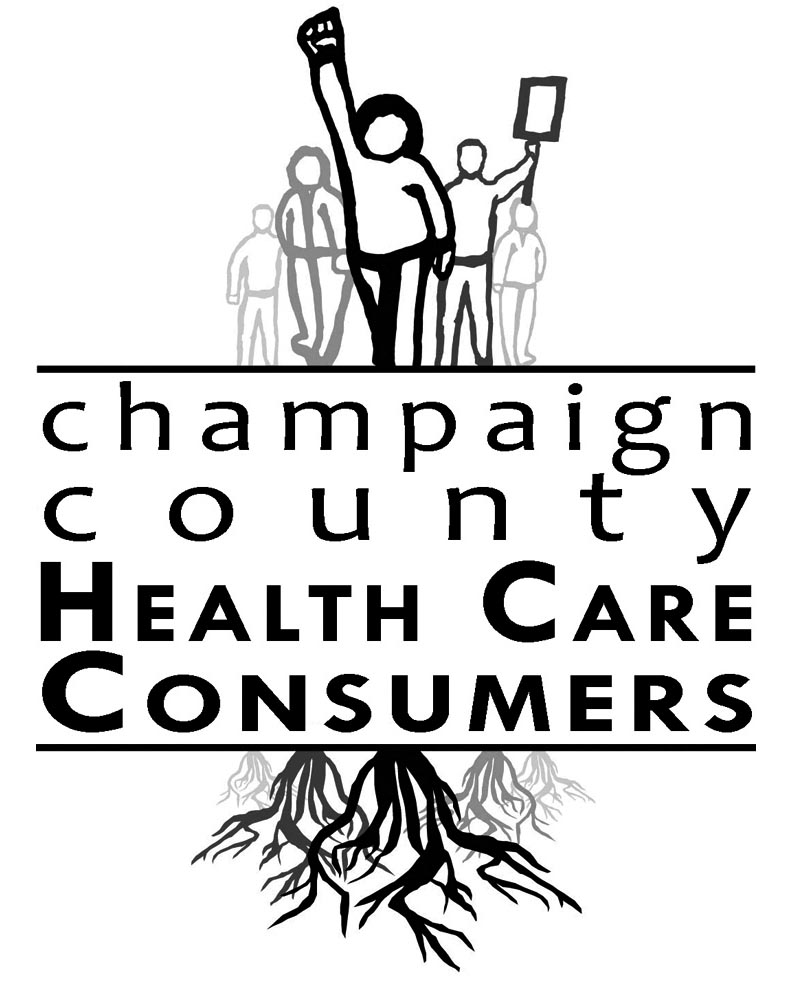As the 2020 Presidential campaign season is kicking into high gear, we are hearing more and more about Democratic candidates’ legislative proposals for expanding health insurance coverage in order for the U.S. to achieve universal coverage (getting everyone covered, regardless of income or other barriers).
Some candidates have expressed support for Medicare for All legislation, as well as other types of universal coverage bills that would expand public insurance programs such as Medicare or Medicaid by allowing a “buy-in” option, or creating a new public option health insurance plan.
Currently, there are about 10 different bills that have been introduced in the House or the Senate, and these bills offer many options for how to achieve universal coverage in the United States.
In order to help you understand the various legislative proposals and how they would expand health insurance coverage, Champaign County Health Care Consumers offers this helpful handout that summarizes the bills and compares the bills to one another on some key features.
The bills can be understood and compared on a continuum, ranging from single payer health insurance on one end, to other expansion of Medicare and Medicaid programs on the other end. All of these legislative proposals that seek to achieve universal coverage aim to do so by expanding or creating public health insurance programs – this is the unifying feature of all of these bills.


We hope this information is useful to you. And while it is unlikely that there will be any significant movement on any of these bills in this session of Congress, CCHCC will help track these bills and keep you updated on any progress. Whether there is movement or not, however, these are important health policy blueprints worth paying attention to.
A word about the Affordable Care Act (ACA), Medicare, and Medicaid: While these universal coverage bills are unlikely to see much movement during this session of Congress, there are real and ongoing efforts to sabotage and cut the ACA, Medicare, and Medicaid. CCHCC will also track these efforts and advocate against any cuts to these important programs. Ultimately, if the U.S. moves to implement real universal health insurance, the program will be built upon either the structure of and/or the funding that currently exists for these programs. It is vitally important that we protect these programs and the funding for these programs.

